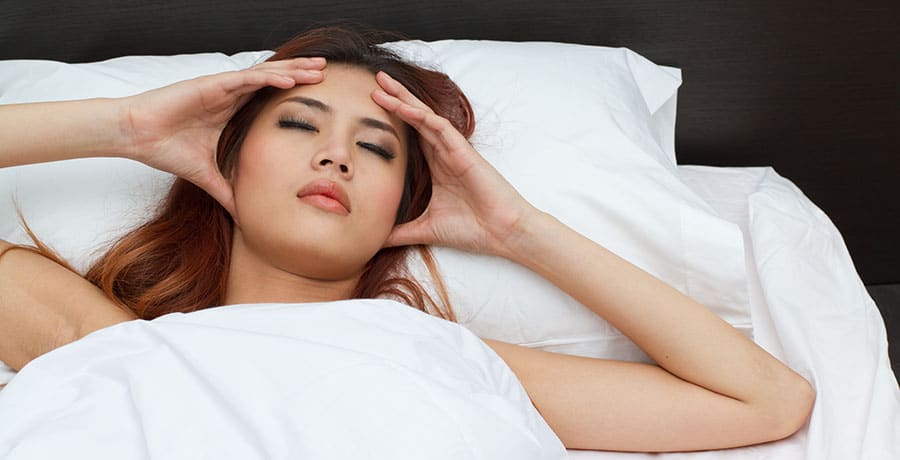A peaceful night’s rest sounds impossible for people suffering from insomnia because they’re wide awake and can’t seem to snooze, even if they’re super tired. If you can’t sleep and want to know more about it before your appointment to an insomnia doctor Clarksburg, you should know that there are a few types of insomnia. One of them is secondary insomnia.
Types Of Insomnia
There are primarily two types of insomnia that can directly affect your sleep schedule and overall mood. Those are:
- Primary insomnia
- Secondary insomnia
Primary Insomnia
Primary insomnia has no specific cause. It can be developed at any age, because of anything or literally nothing. It is usually hereditary and it can put a toll on your sleep schedule because you just can’t get to the bottom of the problem.
The result will be an irritable mood, sluggish behavior, loss of focus and concentration, and inability to fall asleep, even if you haven’t napped or slept all day.
Secondary Insomnia
Secondary insomnia is something that’s caused by another issue. The issue can be a medical problem, substance abuse, the effect of a new routine medicine, and everything in between.
Secondary insomnia can also be triggered by mental health ailments like depression and anxiety and if you’re taking any medicine to combat the mental aspect of things, then secondary insomnia can also strengthen its roots and take over your normal routine.
Usually, people suffering from disorders like:
- Lupus
- Depression
- Anxiety
- Stress
- Chronic disorders like pain, migraines, etc.
will go through the effects of secondary insomnia.
The Categories Of Secondary Insomnia
Secondary insomnia is also divided into two categories, based on the severity and the potential causes and those are:
Acute Secondary Insomnia (also known as short-term insomnia) can be the direct result of things like:
- Jet lag
- Excessive traveling in different time zones
- Short-term stress about a certain thing going on in your life
Chronic Secondary Insomnia (also known as Long-term insomnia), which can be caused due to issues like:
- Medicine dependencies, like hypertension medication or any other routine-based drug
- Stress and anxiety
- Clinical depression
- Addiction to certain substances like caffeine, tobacco, etc.
- Circadian rhythm disorders
Triggers Of Secondary Insomnia
A lot of the time, secondary insomnia is the extended problem of an underlying issue that you might already have. So, a silver lining of secondary insomnia is that you know what’s causing you to not fall asleep at night.
There are a lot of medical or psychological conditions that can lead to secondary insomnia and those include:
- Hormonal imbalance in women like pregnancy, menopause, PCOS, irregular menstruation, etc.
- Chronic pain in the bones, back, and entire body
- Dependency on medication, whether it’s for depression, anxiety, pain, or any other disorder that needs regulation
- Alcohol abuse or addiction
- Allergies and associated symptoms, like allergic rhinitis, pollen allergy, dust allergy, pet allergy, and sometimes food allergies
- ENT problems, like ear infections, throat infections, soreness, post nasal drip, pinching pain in the ear, deviated nasal septum, etc.
- Stomach issues like nausea, vomiting, ulcers, aches and cramps
- Bone disorders like arthritis, osteoarthritis, osteoporosis, and associated pains
- Stimulants like caffeine, especially when taken at night
- Heartburn, especially when you lay down
These are just some of the many things that can cause secondary insomnia and any discomfort associated with the above-mentioned triggers can lead to you feeling restless and unable to sleep for the rest of the night, therefore, your mood will only worsen and you will have a hard time getting things done the next day, because of sheer exhaustion.
Symptoms Of Secondary Insomnia
Here are some symptoms of secondary insomnia. They’re pretty much the same as any type of insomnia, but they can take place, because of triggers or general mismanagement of the trigger in the first place.
- The most obvious one will be an inability to sleep. As soon as your head hits the pillow, you’ll be unable to enter dreamland and that can be quite frustrating.
- Your legs and arms might also involuntarily move. It’s called restless leg syndrome (RLS) and it’s a very common symptom of insomnia.
- If you’ve been feeling stressed lately and haven’t done anything to manage the storm in your head, then it’s highly likely that you won’t fall asleep.
- You will feel really tired, but won’t be able to sleep.
- Even if you do manage to fall asleep, you will wake up suddenly in the middle of the night or much earlier than expected and then when you try to snooze, you just won’t be able to sleep again.
Treatment Of Secondary Insomnia
Treatment of secondary insomnia is a bit more work than you think. Because you’re dealing with two things that need your attention, you need to find a treatment mode that manages the symptoms of the trigger as well as the issue of insomnia. Here are a couple of things that you can try:
- First things first, you need to manage the symptoms of your existing chronic medical condition. If you treat your health issues well, then there’s a high chance that secondary insomnia will go away naturally, especially if it’s acute. So, if you’re dealing with stress and anxiety, then you need to manage these things first.
- This isn’t to say that secondary insomnia doesn’t need any treatment. You might be managing your symptoms well, but the insomnia still won’t go away. There might be a possibility that the secondary insomnia you’re dealing with is long-term or that you need to employ some lifestyle changes to get a better night’s rest.
- Sleep medication and herbs that induce sleep, like chamomile, valerian root, and lavender can help with secondary insomnia and will help you to sleep faster.
- Lastly, cognitive behavioral therapy for insomnia (CBT-I) also helps patients build a good sleeping schedule, a productive routine, and a healthy diet to promote better sleep.
Habits To Prevent Secondary Insomnia
Since secondary insomnia is mostly caused by habitual changes and lifestyle modifications, it can be easily managed with some alternatives as well. Here are some natural ways by which you can try to alleviate the effects of secondary insomnia:
- Try to limit caffeine intake after 5 pm. It is a stimulant and it wills the brain to stay active and alert, so you won’t be able to sleep peacefully.
- Try to take all of your medication in the morning hours, so that the effects can kick in and by the time night falls, the substances are out of your system and you can try to sleep.
- Create a morning routine that allows you to wake up at a certain time each day. This habit is going to train your mind and exhaust your body so that you can sleep.
- Daily exercise, running, and jogging produce endorphins, which are mood boosters, and moving your body, in general, also tires it down, so as night approaches, you will be able to slip away to dreamland easily.
Conclusion
There are various of types of insomnia and that their effects on your sleeping schedule can vary. Now you know what secondary insomnia is and why it worsens over time. Consult a sleep specialist Germantown if you’re experiencing the symptoms.



